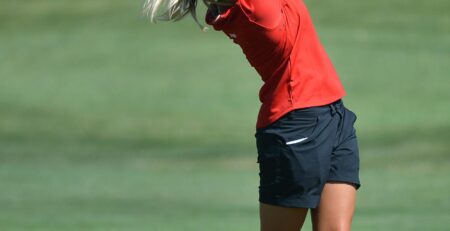Golf Nutrition: Eating for Performance on the Course
Golf is a physically demanding sport that requires both skill and endurance. While many golfers focus on their swing and technique, they may overlook the importance of proper nutrition for optimal performance on the course. Eating a balanced and nutritious diet can help golfers maintain energy levels, improve focus and concentration, and prevent fatigue and muscle soreness. In this article, we will discuss the key components of a golfer’s diet and provide tips on how to eat for performance on the course.
Fuel Your Body
When it comes to golf, it’s important to properly fuel your body for optimal performance on the course. This means consuming a well-balanced diet that provides the necessary nutrients and energy to keep you going throughout your round. The right combination of carbohydrates, protein, and healthy fats can help improve endurance, increase focus and concentration, and reduce the risk of fatigue and injury. It’s also important to pay attention to when you eat, as consuming the right foods at the right times can help regulate blood sugar levels and prevent energy crashes.
Additionally, staying hydrated is crucial, especially when playing in hot weather. Drinking plenty of water and electrolyte-rich beverages can help prevent dehydration, which can negatively impact your performance and overall health. By properly fuelling your body with the right foods and fluids, you can give yourself the best chance of success on the golf course.

Eating for Recovery
In addition to fuelling your body for the course, eating for recovery is just as important to ensure you can perform at your best on subsequent rounds. After a round of golf, your body needs to replenish the energy and nutrients it expended during the game. This can be achieved by consuming a combination of carbohydrates and protein within 30 minutes to an hour after finishing your game. Carbohydrates help replenish the energy stores in your muscles, while protein is necessary for muscle repair and growth. Some good post-round snacks or meals include a turkey and cheese sandwich on whole-grain bread, Greek yogurt with berries and granola, or a chicken and vegetable stir-fry with brown rice.
Additionally, staying hydrated throughout the day, both during and after your game, is crucial for proper recovery. Drinking plenty of water or electrolyte-rich beverages can help prevent dehydration and aid in replenishing lost fluids. Proper recovery nutrition can help reduce muscle soreness and fatigue, allowing you to perform better in subsequent rounds.
Common Dietary Challenges
Golfers, like many other athletes, often face several dietary challenges that can impact their performance on the course. One such challenge is dehydration, which can lead to fatigue, decreased focus, and poor decision-making abilities. To combat dehydration, it is important to drink plenty of water and other hydrating fluids before, during, and after a round of golf. Another dietary challenge faced by golfers is consuming too many high-fat and high-calorie foods, which can lead to sluggishness and decreased energy levels. It is important for golfers to consume a balanced diet that includes a variety of nutrient-dense foods, such as fruits, vegetables, lean proteins, and whole grains, to provide the energy and nutrients necessary for optimal performance on the course.
Finally, many golfers struggle with overeating or undereating due to stress or anxiety, which can also impact their performance. Developing a healthy relationship with food and practicing mindful eating habits can help golfers maintain a healthy weight and support their overall physical and mental wellbeing.
Planning Your Meals and Snacks
Planning your meals and snacks in advance is an essential aspect of proper golf nutrition. To ensure that you have the necessary nutrients to fuel your game, it is essential to plan your meals and snacks in advance. Aim to consume a healthy and balanced diet that includes a variety of foods from all food groups, such as lean protein sources, healthy fats, whole grains, fruits, and vegetables.
Start by planning your meals and snacks for the day or week, taking into consideration your tee times, practice schedule, and other activities. Make sure to include a balanced meal before your round and healthy snacks during your game to maintain your energy levels and focus.

When planning your meals and snacks, opt for easy-to-digest foods that provide sustained energy. Avoid foods that are high in sugar and fat, as they can cause a sudden surge in energy followed by a crash. Instead, choose complex carbohydrates, such as whole grains and vegetables, and lean protein sources, such as chicken, fish, and tofu. Incorporating healthy fats, such as avocado and nuts, can also help keep you satiated and provide sustained energy.
Supplements
Supplements can be a useful addition to a well-balanced diet, but they should not be relied on as a substitute for whole foods. It is important to consult with a healthcare professional before starting any supplement regimen, as they can interact with medications or have negative side effects. Some supplements that may be beneficial for golfers include omega-3 fatty acids for reducing inflammation, vitamin D for bone health, and caffeine for increasing alertness and focus. However, it is important to note that supplements are not regulated by the FDA, and their efficacy and safety may vary. It is recommended to obtain essential nutrients primarily from whole foods, and supplements should be used only as a complement to a healthy diet.
Planning for Success
In conclusion, nutrition plays a crucial role in optimising performance on the golf course. By properly fuelling your body with the right nutrients, you can increase your energy levels, reduce fatigue, and enhance your focus and concentration. Whether you are a professional or amateur golfer, it is important to pay attention to your dietary habits and make adjustments to your eating plan as necessary. By incorporating the tips and strategies outlined in this article, you can improve your overall health and performance on the course, as well as reduce your risk of injury and illness. So, take the time to plan your meals and snacks, stay hydrated, and consider adding supplements to your diet. With a little bit of effort and dedication, you can optimise your nutrition and take your golf game to the next level.










